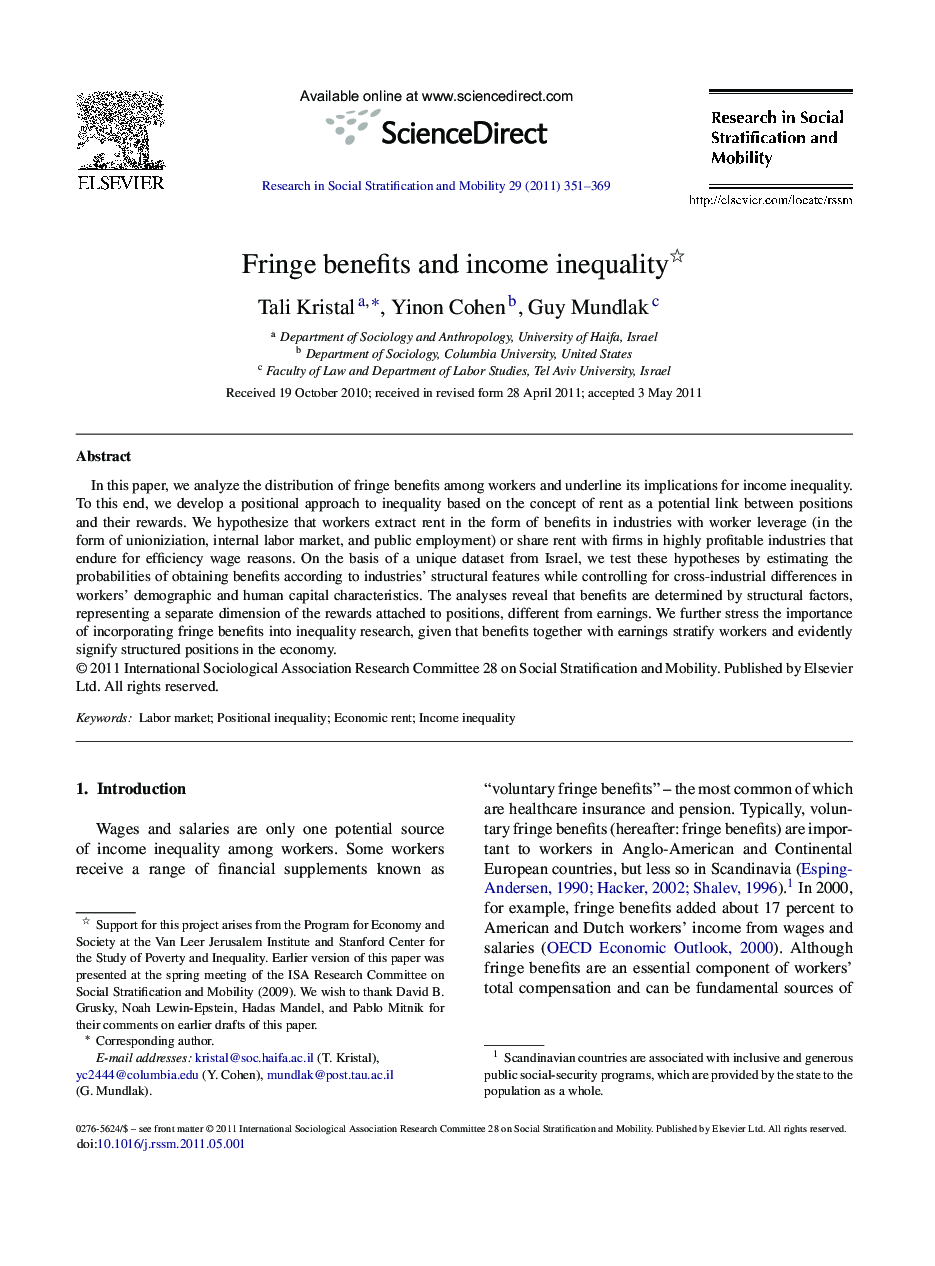| Article ID | Journal | Published Year | Pages | File Type |
|---|---|---|---|---|
| 999730 | Research in Social Stratification and Mobility | 2011 | 19 Pages |
In this paper, we analyze the distribution of fringe benefits among workers and underline its implications for income inequality. To this end, we develop a positional approach to inequality based on the concept of rent as a potential link between positions and their rewards. We hypothesize that workers extract rent in the form of benefits in industries with worker leverage (in the form of unioniziation, internal labor market, and public employment) or share rent with firms in highly profitable industries that endure for efficiency wage reasons. On the basis of a unique dataset from Israel, we test these hypotheses by estimating the probabilities of obtaining benefits according to industries’ structural features while controlling for cross-industrial differences in workers’ demographic and human capital characteristics. The analyses reveal that benefits are determined by structural factors, representing a separate dimension of the rewards attached to positions, different from earnings. We further stress the importance of incorporating fringe benefits into inequality research, given that benefits together with earnings stratify workers and evidently signify structured positions in the economy.
